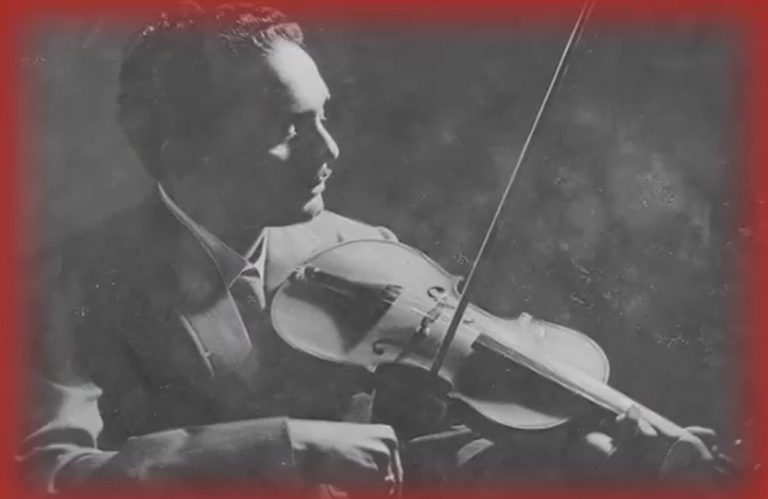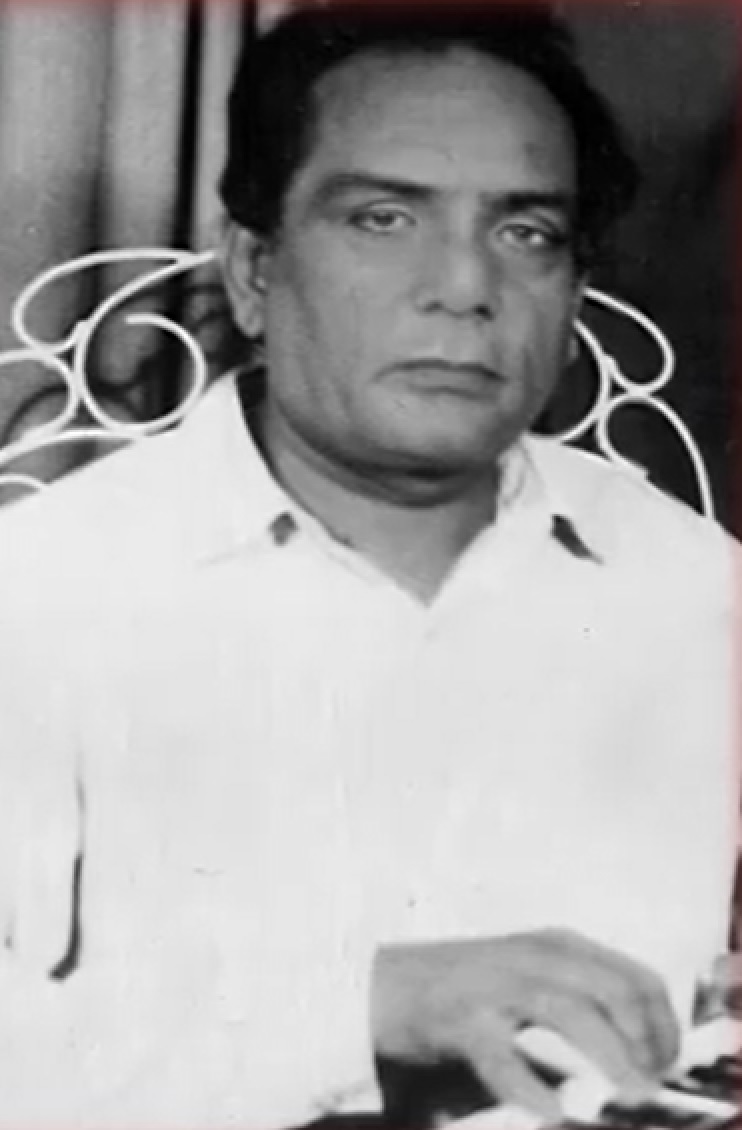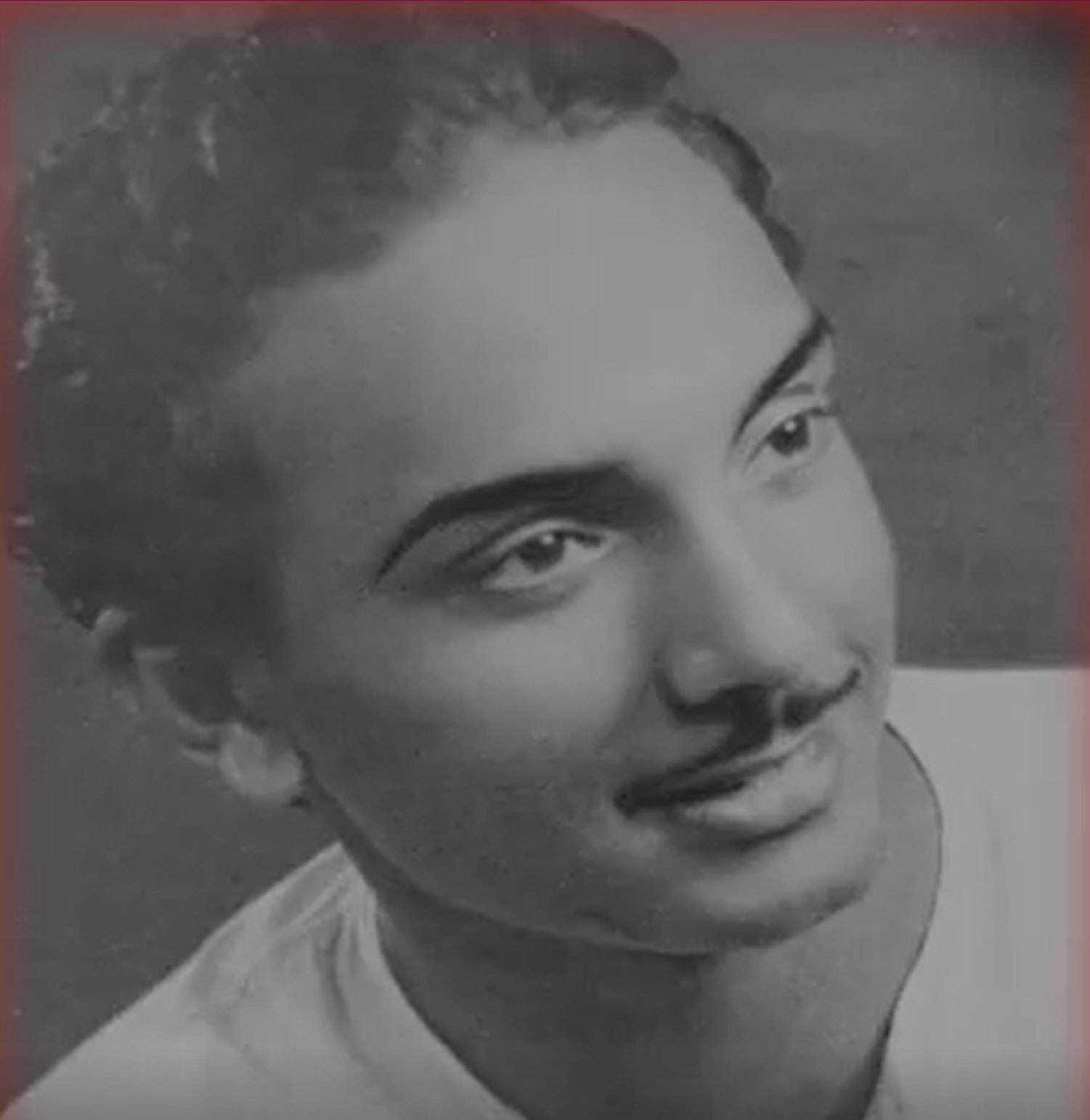
Hailing from the Gwalior Gharana of music, the eldest and the most gifted son of Ustad Beebo Khan, Ustad Niaz Hussain was Sindh’s unique, modernist, versatile, creative and all-rounder music composer and music creator.
Yasir Qazi
Be it ‘Jab se tu ne Mujhe Deewana Bana Rakha Hai…’ Hakeem Nasir’s famous ghazal sung by Abida Parveen, the Queen of Melody, or ‘Kal Chaudhween Ki Raat Thi… Shab Bhar Raha Charcha Tera…’ Ibn Insha’s most famous conception; be it “Deewaron Se Baatain Karna Achha Lagta Hai…” Nasir Kazmi’s Ghazal sung by Zaheer Warsi or “Koi Hum-Nafas Naheen Hai… Koi Raazdaan Naheen Hai…” of Mustafa Zaidi in the voice of Rajab Ali… Listening to all these and other innumerable songs and ghazals like these, the fragrance of the melodies makes us feel glaringly that these tunes are created by the unique composer of the Gwalior Gharana of music, the eldest and the most gifted son of Ustad Beebo Khan, known as Sindh’s modernist, versatile, creative and all-rounder music composer and music creator Ustad Niaz Hussain, who passed away three decades ago, but the immortal melodies created by his magical fingers moving on the keys of the harmonium, have prolonged his age for centuries. This is Ustad Niaz Hussain, whom the beautiful poet of Sindh, Shamsheer-ul-Haidari called “the darling of the field of music”, while Mumtaz Mirza described him as “the Scholar of the great knowledge of Sindhi melody”. The famous lyricist Syed Manzoor Naqvi denotes him as “the singer and hero of music”, and Zawar Naqvi titles him as “the Wolfgang Mozart of Sindh.”
Niaz Hussain Qureshi, commonly known as Ustad Niaz Hussain, was born on January 24, 1936, in Karachi to Ustad Muhammad Ibrahim alias Ustad Beebo Khan. He completed his education in Hyderabad Sindh and passed the Sindhi final examination from Al-Farooq Muslim Primary School, Khaahi Road, Hyderabad, where brilliant teachers like Ibn-e-Ilyas Soomro, Muhammad Nawaz Awan and Jan Muhammad Jamali bestowed him with formal education and played an affirmative part in its completion. At the same time, Ustad Imamuddin Khan taught him the holy Qur’an and acquainted him with the path of enlightenment. Just as the musical training of every child born in the great Gwalior music family begins from his very infancy, so does the training of this little child start from his childhood, and Ustad Mubarak Ali Khan took the charge of teaching him the traditional lessons of music of the subcontinent. While Ustad Mubarak trained him in prescribed music, Ustad Muhammad Usman also introduced him to the modes of Western music. However, in terms of playback music, he was very much influenced by Naushad Ali, the great music director of the subcontinent and considered Naushad as his “Spiritual Mentor” and always expressed that he learnt a lot from the style of melodies created by Naushad. As a part of this multi-angled training of music, he considered it obligatory for himself to specialize in composing the particular style of music of Hazrat Shah Abdul Latif Bhittai, the great poet of Sindh, and to comprehend the conventions of ‘Shah Jo Raag’; therefore he received proper training from Syed Ghulam Shah, an expert of Shah Latif’s Music. It was only after this exercise that Ustad Niaz Hussain became one of the first authentic music composers of Shah Latif’s Vaaee. His sole accomplishment in the domain of Sindhi music is to compose Hazrat Shah Abdul Latif Bhittai’s Vaaee with correct and clear pronunciation, accent and meaning and to make Bhittai’s message common, for the first time.
 Ustad Niaz’s association with radio started in the same year – 1955 when radio broadcasting started in Hyderabad; and this unbreakable bond with this great institution continued for 38 consecutive years until his last breath (1992). His association with Pakistan Television also started in the same year, when the TV telecast started in Pakistan in 1964. His active involvement with television continued until 1984, but he continued to perform occasionally on television after that too. His last TV appearance was in “Sur Jo Safar”, a music program in Sindhi recorded and aired in 1990. Radio Hyderabad was like Ustad Niaz’s second home, from where he used to arrange music in daily routine music programs that have been broadcast for more than three and half a decades. Also, the special series of radio programs like “Radio Music School”, “Sanrreh’a Ja Seengaar’a” and “Raag Paheli” etc. became very popular among the listeners due to his enchanted musical contribution. The music library of Radio Pakistan Hyderabad still has more than two and half a thousand music numbers of the compositions by Ustad Niaz Hussain.
Ustad Niaz’s association with radio started in the same year – 1955 when radio broadcasting started in Hyderabad; and this unbreakable bond with this great institution continued for 38 consecutive years until his last breath (1992). His association with Pakistan Television also started in the same year, when the TV telecast started in Pakistan in 1964. His active involvement with television continued until 1984, but he continued to perform occasionally on television after that too. His last TV appearance was in “Sur Jo Safar”, a music program in Sindhi recorded and aired in 1990. Radio Hyderabad was like Ustad Niaz’s second home, from where he used to arrange music in daily routine music programs that have been broadcast for more than three and half a decades. Also, the special series of radio programs like “Radio Music School”, “Sanrreh’a Ja Seengaar’a” and “Raag Paheli” etc. became very popular among the listeners due to his enchanted musical contribution. The music library of Radio Pakistan Hyderabad still has more than two and half a thousand music numbers of the compositions by Ustad Niaz Hussain.
Ustad Niaz also set up a music and theatre training institute called “Sindh Music College” at Khaahi Road Hyderabad in 1950, from the platform of which he organized several music programs between 1956 to 1962 and produced a number of memorable Sindhi and Urdu stage plays including “Jashn-e-Baharan” (Spring Festival), “Sasu’i Panhoon”, “Ghaddar Leader”, “Hum Sab Ek Hain” and many others, in which he also showed his faculty of theatre direction and acting. These plays were loved by the citizens of Hyderabad and were remembered for a long period. Later, when the “Centennial celebrations of Sindhi Theatre” took place in 1980-1981 at Hyderabad, Ustad Niaz Hussain gave the background music for the six dramas of the festival, counting memorable stage plays such as “Laila Majnoon”, Mirza Kalich Baig’s fantastic play “Enquiry Officer”, “Tea Party”, “Zamindari Zulm”, “Shahidi” and “Tamaasho”. This was one of his unforgettable feats. Niaz also initiated an audio cassette company in Hyderabad, which released more than 50 music audio albums in the shape of cassettes.
The magical fingers of every music student are adept at dancing on the harmonium but Ustad Niaz had learnt to play many other Eastern as well as Western music instruments with great skill, along with Harmonium. These include piano, Sitar, violin, accordion, Banjo, guitar and many more. His favorite melodies (Raga’s) in terms of composing various items were Malkauns, Bhopali, Ranro, Sendhrro, Tilang, Bheravi, Lorraa’u, Miyan Ki Torri and A’iman.
The number of singers whom Ustad Niaz Hussain trained in music is huge, but some of them are Jamal Siddiqui, C. Bernard Baby, Shazia Khushk, Parivash Bhutto, Ghulam Qadir Daawach, Sheral Naik Birory, Saleem Naushad, Abdul Rasheed, Sehrish Memon, Shafiq Ahmed, Raheem Bakhsh Soomro, Masood Rana, Rajab Ali, his own sons – Zulfiqar Ali, Nazar Hussain, Mazhar Hussain, Amanat Ali and Mahmood Ali etc. whereas a number of already established artistes were groomed by Ustad Niaz and reintroduced on many platforms, including artists like Abida Parveen, Muhammad Yousuf, Waheed Ali, Allan Faqir, Mai Bhagi, Noor Bano, Sadiq Ali, Fauzia Soomro, Zareena Baloch, Bisharat Ali Shah, Sehrish Memon and others.
 Ustad Niaz Hussain’s talent was applauded at every level. From 1964 to 1974, he received numerous certificates of appreciation from Pakistan Television. He also got “Lal Shahbaz Qalandar Award” twice and “Sachal Sarmast Award” once. Not only during his lifetime but also after his demise, several organizations have given him awards as acknowledgement of his services in the music arena, including ‘Latif Award’ by the Department of Culture, Government of Sindh and PBC (Radio Pakistan) Award. The significant participation of Ustad Niaz Hussain as music director, orchestra in-charge and music arranger was always the primary need and the cause of prettification in every significant festival taking place in Sindh, including various Urs celebrations, national and cultural days and official as well as private fetes.
Ustad Niaz Hussain’s talent was applauded at every level. From 1964 to 1974, he received numerous certificates of appreciation from Pakistan Television. He also got “Lal Shahbaz Qalandar Award” twice and “Sachal Sarmast Award” once. Not only during his lifetime but also after his demise, several organizations have given him awards as acknowledgement of his services in the music arena, including ‘Latif Award’ by the Department of Culture, Government of Sindh and PBC (Radio Pakistan) Award. The significant participation of Ustad Niaz Hussain as music director, orchestra in-charge and music arranger was always the primary need and the cause of prettification in every significant festival taking place in Sindh, including various Urs celebrations, national and cultural days and official as well as private fetes.
Ustad Niaz Hussain got married on May 12, 1962. As offspring, he left four sons: Dr. Zulfiqar Ali (now a well-known singer and musicologist), Mian Nazar Hussain (now a well-known music composer and arranger), Mazhar Hussain (a noted Sindhi singer), Amanat Ali; and a daughter, named “Jia”.
Niaz Hussain, the composer of various genres of music, from religious categories such as Hamd, Naat, Soz, Salam, Noha, Marsiya, Manqabats and Bhajans, to countless classical, semi-classical songs, Kafees, folk songs, Ghazals, Verses, free-verses, Haikus, humorous songs, thematic songs to ‘commercial jingles’ in Sindhi, Urdu, Seraiki and Punjabi, expressed his artistic talents fully in terms of quality as well as quantity without killing a single moment, left this world and met his maker 30 years ago, on Friday, February 7, 1992, at about 8 o’clock in the night, at the age of 56. No doubt, he continued to perform this artistic endeavor, while he was alive, to be remembered in this mortal world for as long as possible, leaving such a great and unique contribution.
He is laid to rest in the ancient cemetery of Tando Yousuf in Hyderabad Sindh, and the innumerable songs composed by him are still resounding in the mesosphere of Sindh and will continue to resonate.
_____________________
 The author is a freelance radio and TV broadcast and print journalist, poet, prose-writer, researcher, columnist, blogger, translator, media expert, and author of 12 books in Sindhi. He writes regularly for English, Urdu and Sindhi papers and websites.
The author is a freelance radio and TV broadcast and print journalist, poet, prose-writer, researcher, columnist, blogger, translator, media expert, and author of 12 books in Sindhi. He writes regularly for English, Urdu and Sindhi papers and websites.